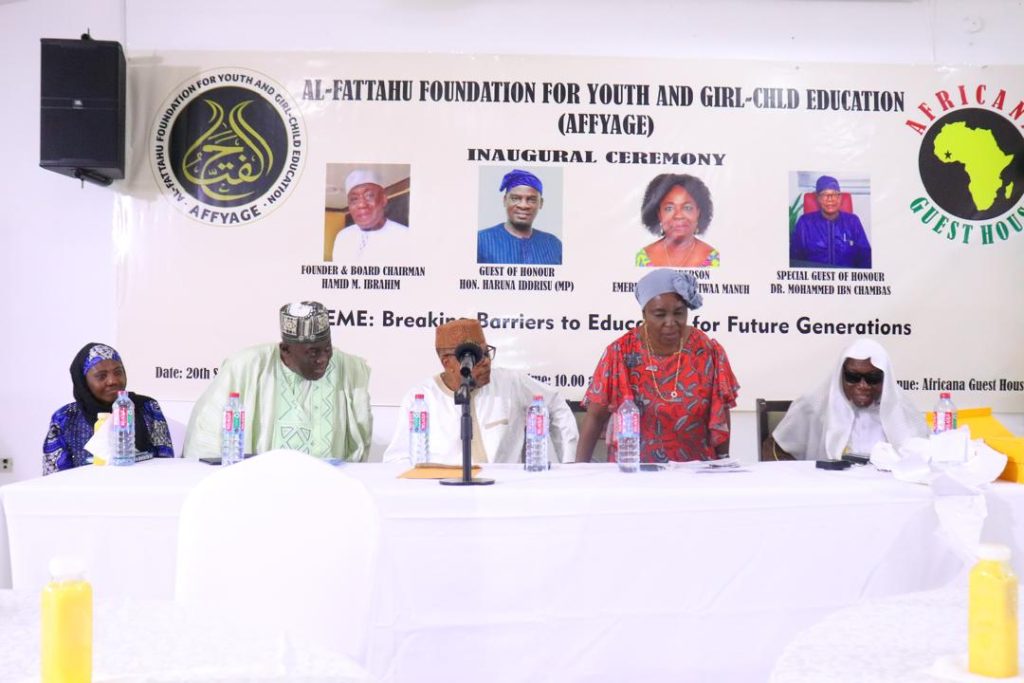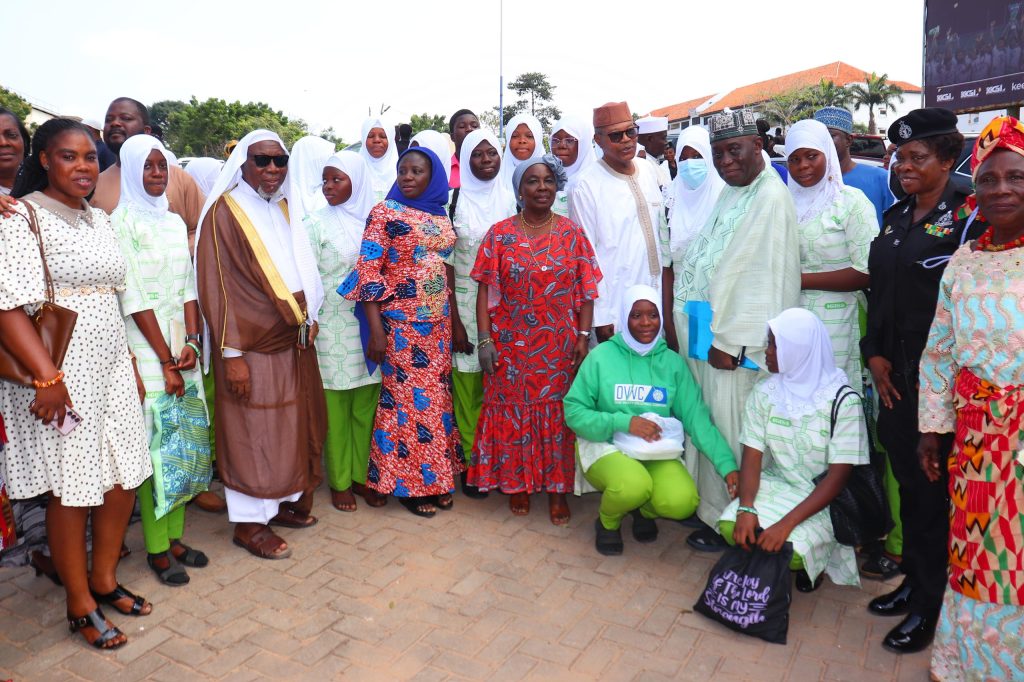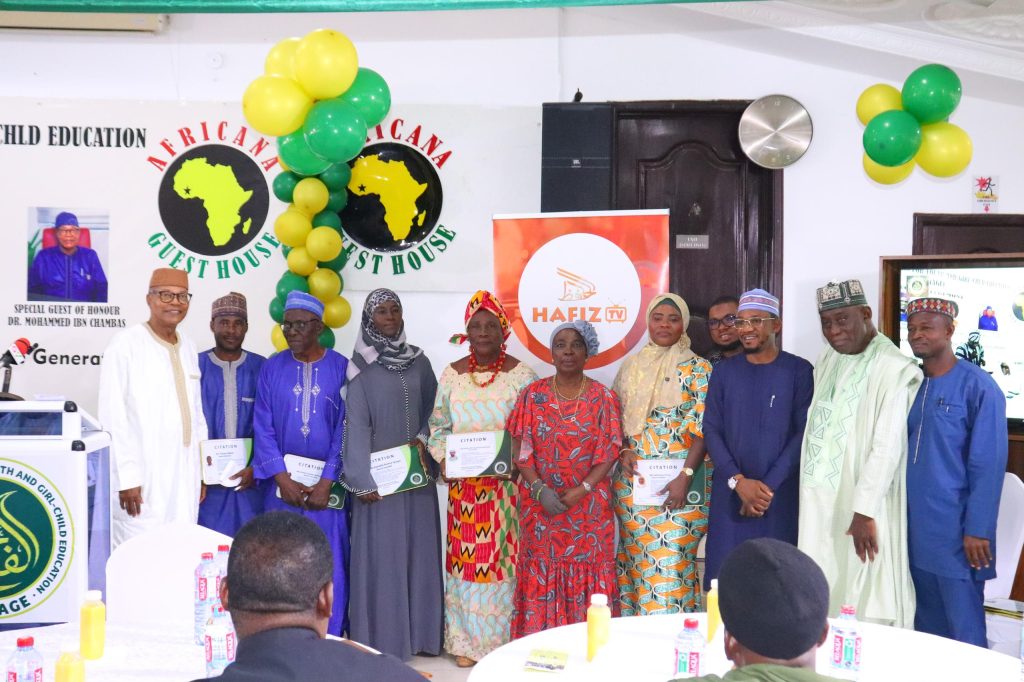
The Al-Fattahu Foundation for Youth and Girl-Child Education (AFFIAGE) was officially launched on 20 September 2025, at the Africana Guest House in Accra.
Themed “Breaking Barriers to Education for Future Generations,” the event brought together students, religious leaders, civil society actors, and development partners committed to educational access and equity.
In attendance were the Founder and Board Chairman, Alhaji Hamid M. Ibrahim; Chairperson of the occasion, Emerita Professor Takyiwaa Manuh; and Special Guest of Honour, Dr. Mohamed Ibn Chambas, the African Union High Representative for Silencing the Guns and Chair of the AU High-Level Panel on the Resolution of the Conflict in Sudan.

Reflecting on the Foundation’s journey, Alhaji Ibrahim said, “It was once a dream, a dream that came true. Your presence here has given this vision life.”
He paid tribute to Dr. Ibn Chambas, calling him “a brother and friend of over 50 years,” dating back to their time at the University of Ghana.
The Foundation aims to provide scholarships, mentorship, vocational training, and digital skills to underserved communities. It also plans to raise awareness about artificial intelligence and child marriage, while complementing government efforts such as the National Girls in ICT Initiative and Comprehensive Sexuality Education.
“AI is not an alternative, it is our reality,” Ibrahim said.
“We must equip our youth to face the future with knowledge and resilience,” he added.
In his address, Dr. Ibn Chambas emphasised the urgent need to tackle educational inequality.
“Education is not just a social good but the foundation of national progress and human dignity,” he noted, adding that over 1.2 million school-age children in Ghana are not attending school, with the Northern, Upper East, and Upper West regions being the most affected.

He cited early marriage, underfunding, and poor infrastructure as key barriers. “More than 4,000 schools operate under trees or temporary structures, and only 53% have access to improved water and sanitation,” he stated.
Dr. Chambas commended AFFIAGE’s commitment, especially its focus on the Muslim girl-child, who faces heightened dropout rates and cultural constraints. He called for stronger partnerships between government, NGOs, and communities.
“Breaking these barriers is not an act of charity; it is an investment in Ghana’s future,” he said. “If we succeed, the next generation of Ghanaian children will not only sit in classrooms, they will learn, they will thrive, and they will lead.”
